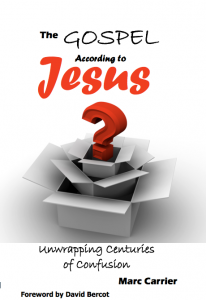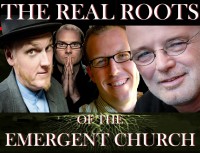 But doesn’t the Bible teach that our righteous acts are filthy rags? No, this is simply another example of a revisionist Christian history. Nothing could be more pleasing to God than our continued righteousness; it is for this reason God sent His Son, that we would be righteous and holy.
But doesn’t the Bible teach that our righteous acts are filthy rags? No, this is simply another example of a revisionist Christian history. Nothing could be more pleasing to God than our continued righteousness; it is for this reason God sent His Son, that we would be righteous and holy.
So where does the myth come from? It’s based in reformed theology. According to this doctrine, man has literally zero role in his salvation. Further, man couldn’t do good even if he wanted to. The reformers taught that we could not come to Christ by faith even if we wanted to, but rather it was entirely (and arbitrarily) predestined by God who would and who wouldn’t come to Him. One of the natural conclusions of this theology is that even the good we do, is inherently evil. Isaiah 64:6 is used to support this theology; however, before the reformers, this verse was rarely, if ever, quoted by the early church—it was apparently considered of little consequence. Yet, as a result of the importance of this concept to the reformer’s doctrine of total depravity, it is one of the most oft quoted passages of the Old Testament today. Here it is:
But we are all as an unclean thing, and all our righteousnesses are as filthy rags; and we all do fade as a leaf; and our iniquities, like the wind, have taken us away. (Isaiah 64:6)
Now I encourage you to read it in context. This is Isaiah speaking in a penitent prayer to God, referencing and speaking on behalf of rebellious Israel. This is not God speaking about all of humanity for all time, but rather an emotional plea to God for a rebellious people, a very specific people—the prophet’s contemporaries.
Simply do a biblical word search for “righteous,” “upright,” and even “blameless” to see what you come up with. Regardless of translation, you will find literally hundreds of references to men and women who were considered “righteous” before God apart from Christ—that is, without an “imputed righteousness.” You will likewise find numerous references in the wisdom literature of the righteous commended by God. There is equal consistency in the New Testament. Prior to faith in Christ, Zacharias, Elizabeth, John the Baptist, Joseph the father of Jesus, Simeon, Joseph of Arimathea, and Cornelius were all called “righteous” and were praised for their conduct. This certainly does not mean these people were without sin (see for example Romans 3:9-10); it just means that they lived their lives pleasing to God, striving to adhere to His precepts. Never does God consider this filthy or bad.
In fact, John, the beloved apostle of Jesus’ inner circle, said this in his first epistle:
And everyone who has this hope fixed on Him purifies himself, just as He is pure. Everyone who practices sin also practices lawlessness; and sin is lawlessness. You know that He appeared in order to take away sins; and in Him there is no sin. No one who abides in Him sins; no one who sins has seen Him or knows Him. Little children, make sure no one deceives you; the one who practices righteousness is righteous, just as He is righteous; the one who practices sin is of the devil; for the devil has sinned from the beginning. The Son of God appeared for this purpose, to destroy the works of the devil. No one who is born of God practices sin, because His seed abides in him; and he cannot sin, because he is born of God. By this the children of God and the children of the devil are obvious: anyone who does not practice righteousness is not of God, nor the one who does not love his brother. (1 John 3:3- 10, emphasis added)
In this single passage we see concurrence with what we have covered thus far. Lawlessness is defined here as sin, (that is, disobedience to Christ’s law), consistent with the passages we discussed in Matthew 7 and 13. We also see that Jesus came to destroy the works of the devil; not just to forgive our sins, but rather to free us from sin—to break the chains and release us from the Law of Sin and Death. Again, His atonement was to change us, not just to perform a legal transaction.
However, the passage was here introduced to dispel the myth of imputed righteousness. Jesus did not suffer and die for us to simply accept a hypothetical, spiritual “righteousness” that in actuality never manifests itself in our lives. He came to destroy the works of the devil, so that through Him we would be reborn free from the bondage of sin, and walk in ACTUAL righteousness by the power of the Holy Spirit. John says that he who PRACTICES righteousness IS righteous, not he who simply believes himself to be righteous “in Christ.” In fact, he explicitly says MAKE SURE NO ONE DECEIVES YOU otherwise! Have we accepted the deception of a false “gospel?” John again says that the one who does not practice righteousness is of the devil. This is no symbolic righteousness here; clearly one can not “practice” something that is not real. This refers to a genuine, lived-out righteousness, the purpose of Christ’s atonement!





